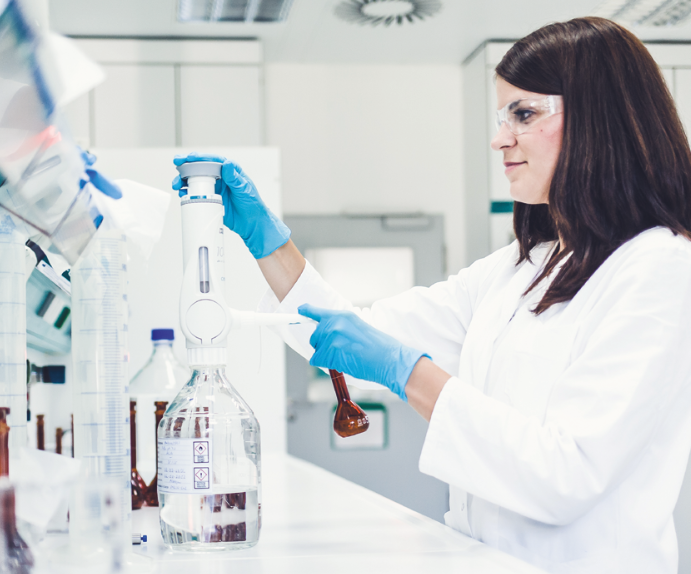- Bone Health
- Immunology
- Hematology
- Respiratory
- Dermatology
- Diabetes
- Gastroenterology
- Neurology
- Oncology
- Ophthalmology
- Rare Disease
- Rheumatology
Study: Biosimilar rhGH Well Tolerated and Effective in Turner Syndrome
A multicenter study of recombinant human growth hormone (rhGH) in children with Turner syndrome demonstrated safety and efficacy comparable to the reference product.
A multicenter observational study of 348 children with Turner syndrome (TS) found that biosimilar recombinant human growth hormone (rhGH) therapy was safe and effective in real-life clinical practice.
The investigators reported on a subgroup of patients with TS from the PAtients TReated with Omnitrope (PATRO) Children study, a long-term, postmarketing surveillance study of children treated with biosimilar rhGH (Omnitrope; Sandoz).
TS is characterized by partial or complete loss of the second sex chromosome in females and is associated with comorbidities, including growth failure. TS has been treated with reference rhGH (Genotropin; Pfizer) since its approval in 1995. The biosimilar Omnitrope became available after approval by the European Medicines Agency and the FDA in 2006.
The investigators enrolled 348 patients being treated for TS at 130 centers across Europe. Their mean age was 9.0 (range, 0.7-18.5) years at baseline. Most (81.6%) were rhGH naïve, and 90.2% were prepubertal. The mean (SD) treatment duration in the study was 38.5 (26.8) months.
No Unexpected Adverse Events
Safety was the primary end point of the study. The authors pointed out that rhGH is “generally well tolerated” in patients with TS; however, observational studies have reported greater risk for some adverse events (AEs) in patients with TS receiving rhGH. The AEs include intracranial hypertension, slipped capital femoral epiphyses, pancreatitis, and development or progression of scoliosis. The investigators wrote that their findings “do not support an increased risk of these events due to rhGH therapy.” However, noting the relatively short treatment duration in their study, they cautioned “longer-term follow-up would be required to verify these safety findings.”
Overall, approximately half of the patients (170; 48.9%) experienced AEs, most of which were mild or moderate. Twenty-five patients experienced treatment-related AEs, including headache, impaired glucose tolerance, increased insulin-like growth factor levels, and increased weight. One patient experienced scoliosis that was deemed treatment related.
Approximately half (172; 49.4%) of the patients discontinued the study. The most common reason (52 patients) for discontinuation was the attainment of adult height or bone age maturation. Six patients discontinued the study because of a lack of treatment response. Ten patients discontinued due to AEs, one of whom experienced a serious AE (intracranial hypertension) that was “possibly related to treatment.” The authors wrote that their safety findings “show no evidence of an increased risk of developing unexpected AEs or new malignancies during rhGH treatment.”
“Substantial” Height Gains
The investigators included 163 patients in their 3-year effectiveness cohort, 131 of whom were rhGH naïve prior to the study. Most patients (98.5% of the rhGH-naïve group and 90.6% of pretreated patients) were prepubertal.
Effectiveness was assessed by height velocity (HV), height standard deviation score (HSDS), and height velocity standard deviation score (HVSDS). The mean (SD) HV at 3 years was 5.2 (1.3) cm/year in prepubertal treatment-naïve patients and 4.7 (1.4) cm/year in prepubertal pretreated patients. From baseline to 3 years, gains in HSDS were 1.17 in prepubertal treatment-naïve patients and 0.04 in prepubertal pretreated patients. Mean increase in peak-centered HVSDS from baseline to 3 years was 3.94 in prepubertal rhGH-naïve patients and 0.47 in prepubertal pretreated patients.
Adult height was reached by 51 patients (31.1%), 35 of whom were rhGH naïve at baseline. In those 35 patients, the mean HSDS was –2.97 (1.03) at baseline, and at 3 years, the mean AHSDS was –2.02 (0.9). The AHSDS was similar in pretreated patients, at –2.10 (1.1).
These effectiveness findings “are broadly in line with those from other observational studies in TS patients,” according to the authors.
The authors concluded that treatment with biosimilar rhGH was well tolerated in patients with TS, and no unexpected safety signals were identified.
“Several well-known AEs were observed, confirming the need for ongoing patient monitoring,” they wrote. Although safety was their primary end point, they wrote that their effectiveness data showed “substantial height gains were observed in prepubertal individuals over 3 years of treatment.”
Reference
Backeljauw P, Kanumakala S, Loche S, et al. Safety and effectiveness of recombinant human growth hormone in children with Turner syndrome: data from the PATRO children study. Horm Res Paediatr. 2021;94(3-4):133-143. doi:10.1159/000515875
Newsletter
Where clinical, regulatory, and economic perspectives converge—sign up for Center for Biosimilars® emails to get expert insights on emerging treatment paradigms, biosimilar policy, and real-world outcomes that shape patient care.


